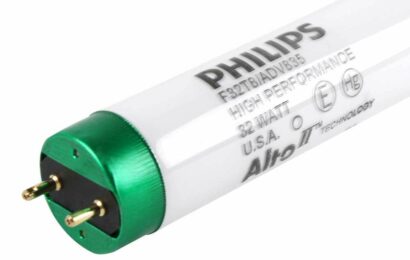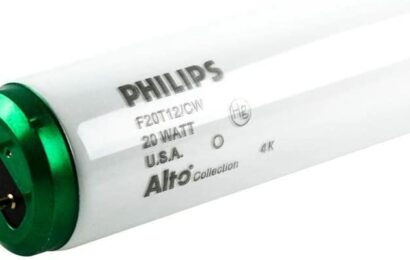Oil is one of the essential chemicals in the world used in various aspects. Often, we use oil in cooking food, which helps bring out the flavors of the food. In addition to using oil in the kitchen, it is also an important chemical used in vehicle engines. It is a crucial chemical of the vehicle’s engine that maintains lubrication to protect its moving parts. We often use an oil thickener to raise the viscosity of oils.
There are many uses for oil thickeners, including but not limited to food, cosmetics, and car engine. In the food industry, oil thickeners improve viscosity without altering the taste. It clings better to food, thus boosting the food flavor. In cars, older engines and high-mileage engines would require more viscous oil to improve oil pressure, lessens oil consumption, and prevents leakage and smoke.
What is an oil thickener?
Oil thickeners are additives to a liquid or a mixture that increases its viscosity
They are added to a liquid or a mixture to increase its viscosity, such as beeswax, butter, lard, etc. They have many uses, including but not limited to cosmetics, food, engines, paints, etc. Oil thickeners in cooking increase liquids viscosity, which is helpful for glazes and evenly coating food. Furthermore, it adds body to food sauces, pie fillings, gravies, and soups. It also helps to bind all ingredients to cling to the food better.
Aside from the benefit of oil thickeners in food, it is also a beneficial additive in engine oil. People use thicker engine oils on cars with old engines and high mileage. Due to the oil thickener, regular engine oil becomes more viscous, which helps protect the old car engine better than the thinner engine oils.
How do you thicken oil viscosity?
Use oil additives to thicken the viscosity of the oil.
The oil is already viscous. But there are times when it needs to be thicker than it should be. Sometimes in cooking, you need a thicker oil to make the food ingredients cling more easily. The same goes for an older car, which requires more viscous oil to protect its worn engine bearings. To thicken the oil, it uses additives such as oil thickeners. There are several techniques used to thicken the oil.
1. In cooking
You can use edible additives such as beeswax, butter, mayonnaise, or mono and diglycerides, which can be done by heating the oil and dissolving additives into it.
2. In a car engine
Generally, oil becomes thinner as temperature increases. Thus, an oil thickener additive is added to increase or stabilize the viscosity. Scientifically Treated Petroleum or STP is used to thicken the oil. You can add STP to engine oils while it’s warm. Adding 300 ml of STP to 3 liters of engine oil can increase the viscosity of the engine oil by 10%. You can also use Lucas Heavy Duty Oil Stabilizer to resist thinning when the engine temperature rises.
What are the oil thickeners used for cooking oil?
Mono and Diglycerides
Thickening agents such as Mono and Diglycerides are used to increase the viscosity of the oil without substantially altering its properties or taste. Mono and Diglycerides oil thickeners are food additives used to stabilize emulsions and thicken oils.
The oil thickeners are often used on bread to prevent crumbling and slow down starch retrogradation, thereby extending the shelf-life of the bread. They also prevent fat crystallization in foods such as chocolate and ice cream. They are melted at 140 ° F (60 ° C) along with the oil to blend well with the oil.
Glycerol monostearate
If you are looking for a solution to thicken flavored oils, Glycerol monostearate is another thickening agent and stabilizer which would help thicken infused oils while maintaining their flavor.
What are the oil thickeners used for engine oil?
Scientifically Treated Petroleum, Castile Motor Honey, and Lucas Oil Stabilizer
These additives increase regular oil viscosity by 10%. It allows the older engine and high-mileage vehicle to get the protection and lubrication needed by maintaining its viscosity at higher temperatures. It helps resist oil thinning at higher temperatures, reduces the friction of the moving parts of the engine, prevents leakage, and preserves the smooth operation of the vehicle.
What does thicker oil do for your engine?
Thicker oil provides better lubrication
Thicker oil is usually used in older vehicles or with higher mileage. Often such vehicles have larger clearances between engine components and loose parts. As a result, thicker oil is necessary as the engine temperature rises to prevent oil from thinning. Thicker oils provide better lubrication in these large clearances and even extend the life of the vehicle.
What are the pros and cons of engine oil thickener?
The use of oil thickeners raises the viscosity of any regular engine oil. Thicker oils provide better protection and lubrication to moving parts of your vehicle, especially for older cars with more clearances and worn engine bearings.
On the other hand, oil thickeners are not recommended for new vehicles because it is not yet needed. Regular oil is sufficient to lubricate the machine. Using thicker oil will waste energy, pumping more viscous oil and reducing fuel economy.





